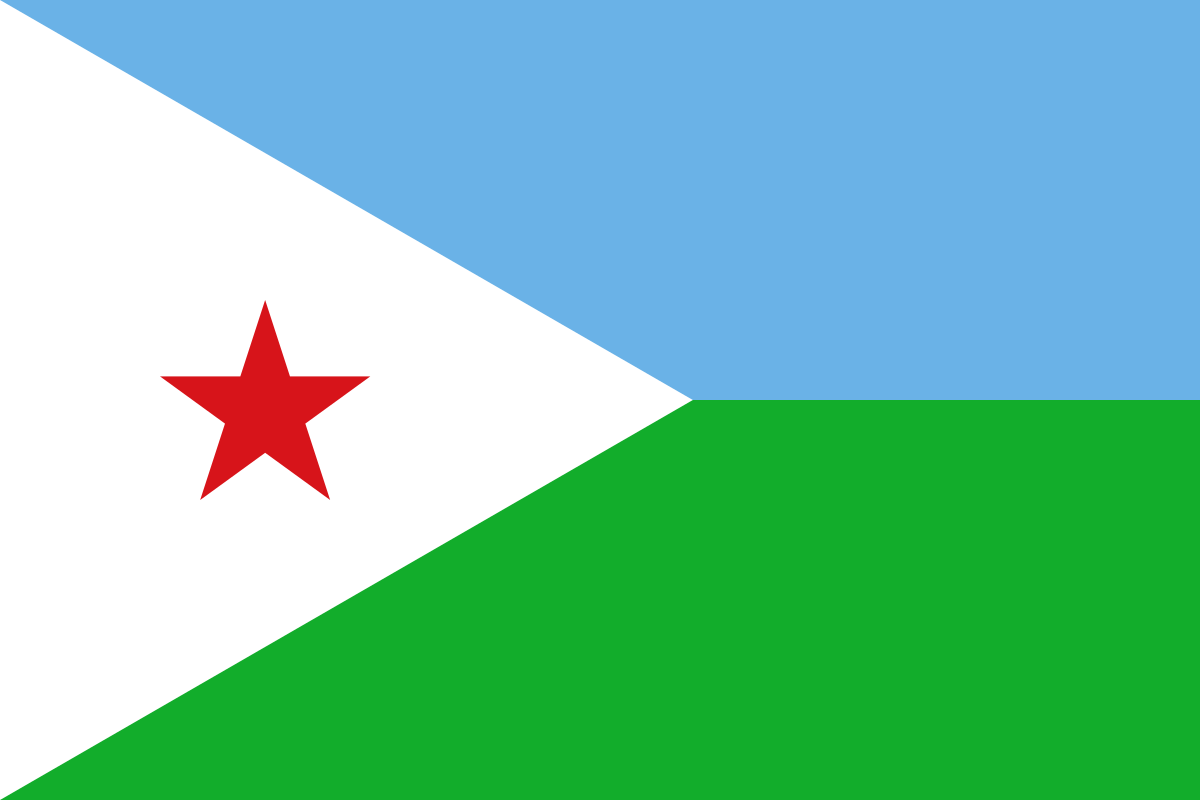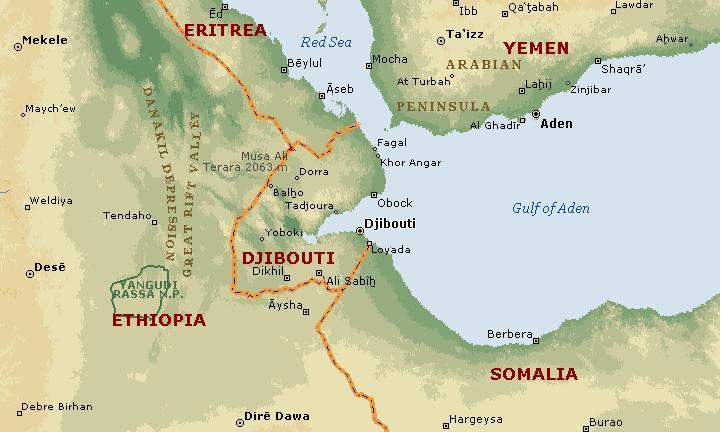Djibouti is a member of the African Union, the Arab League, the Francophonie, Intergovernmental Authority on Development (IGAD) and Organization of Islamic Cooperation (OIC)
A small but important country, Djibouti benefits from its highly strategic location. With access to the Gulf of Aden and the Indian Ocean beyond, the country is a significant gateway to the Horn of Africa and the wider region of East Africa.
Djibouti is reliant on this competitive advantage. Port, logistics and associated services remain the dominant economic activity. The country has limited natural resources, industry or agricultural potential. Nonetheless, it continues to post impressive results. In 2014, the economy achieved a growth rate of nearly 6%, according to estimates from the African Development Bank. While unemployment remains a challenge, this growth figure, coupled with a young and growing population, points to the strong potential of the country.
Djibouti Population 2020
| 944,805 | Current population |
| 472,651 | Current male population (50%) |
| 472,155 | Current female population (50%) |
Animal population
Terrestrial animals, Djibouti, 2018
| Species | Admin unit | Population | Units | Number of establishments | Units |
| Camelidae | The Whole Country | 50000 | Animals | Establishments | |
| Cattle | The Whole Country | 40000 | Animals | Establishments | |
| Equidae | The Whole Country | 7000 | Animals | Establishments | |
| Goats | The Whole Country | 600000 | Animals | Establishments | |
| Sheep | The Whole Country | 400000 | Animals | Establishments |
Agriculture
In Djibouti, the agricultural sector contributes just 3% of GDP, and only a few people work in farming. Due to the Djibouti climate (arid to semi-arid) and the scarcity of freshwater resources (~150 mm rainfall/year), only irrigated and seasonal agriculture is possible. Djibouti farmers use diesel engine water pumps, which have significant costs to purchase (~$2,000) and operate (~$1,700/hectare). These high costs result in elevated prices for locally produced agriculture products compared to imported fruits and vegetables. Djibouti, therefore, imports most of its fresh vegetables and fruits from neighboring countries, including Ethiopia, Yemen, Kenya, and Europe/France. The project team explored solutions and innovations which could alleviate constraints and allow local farmers sufficient financial incentive to stay on their land while providing increased food security and economic opportunities. In developing this analysis, we used as a model a real Djibouti farm, that belonging to Aden Atteyeh Sougal, which provides extensive, if complex, data to build our project analyses on. While the team evaluated technologies and system requirements based on the Aden family farm, it is our hope that this research forms the basis for on-going exploration of economically viable irrigation systems for Djibouti smallholders in general.
Livestock
Djibouti’s livestock resources are important to approximately 60% of the population who depend on it as a source of livelihood. There is an estimated 1 million head of sheep and goats and 300,000 cattle in the country. The sector is faced with many challenges including inadequate government policies to support sustainable livestock production, lack of rainfall to naturally produce pasture/fodder, insufficient groundwater to grow irrigated livestock feed, poorly developed public or private sector animal health, production and breeding services.
Moreover, there is little governmental budgetary support that could facilitate and promote private sector investment in the livestock sector. Therefore, the sector has attracted little innovation such as promoting public-private partnership investment to develop it even though most of the country’s inhabitants have a strong cultural attachment to livestock.
Fishing
Djibouti has a coastline of 372 km and a maritime area of 6280 km2 at the crossroads of the Red Sea and the Gulf of Aden. Djibouti’s fishing catch was 503 tons by 1981. Most fleets were located on the eastern coast near Djibouti City.
Natural Resources
Despite these difficulties, Djibouti also has some natural advantages. In terms of metals and minerals, it contains deposits of gold, granite, limestone and marble. In terms of energy, moves have been towards petroleum exploration, while there is also the potential for a geothermal generation. The Ministry of Energy estimates that the country’s geothermal energy potential is in the region of 1000MW. According to the International Renewable Energy Agency, geothermal power plants could reduce the cost of power generation by a margin of nearly $0.20 per kWh. Djibouti is also well placed to become an important energy transit country and a downstream location. Neighbouring Ethiopia has recently made new natural gas discoveries and has refocused efforts on exploiting existing reserves. In September 2015 the two countries signed a $1.55bn deal for a new 550-km pipeline, known as the Horn of Africa Pipeline, transporting fuel between central Ethiopia and the Djibouti coast, including a 950,000-barrel storage capacity in Damerjog.
Climate
Djibouti has a subtropical desert climate. It is hot and arid. The capital, Djibouti city, is one of the warmest and driest cities in the world. Average temperatures here range from 23°C in winter to 42°C in mid-summer. The country receives very little precipitation, with the wettest month, November, receiving on average five days of rain. Unsurprisingly, Djibouti is vulnerable to droughts. However, the country can also suffer from flash flooding, a consequence of cyclonic activity in the Indian Ocean.
With just 0.3 cu km of total renewable water resources, Djibouti is one of the most water-scarce countries in the world. As such, there is little irrigated land in the country. As of 2003, the latest year for which statistics are available, just 10.12 sq km – well under 1% of the available land area in the country – is irrigated. Limited arable land and potable water, as well as increasing desertification, remain significant challenges for the country.
Djibouti Delegate
Dr Moussa Ibrahim Cheik
Directeur
Elevage et Services Vétérinaires
Ministère de l’Agriculture, de l’Eau, de la Pêche, de l’Elevage chargé des Ressources Halieutiques
BP 297
Boulaos
DJIBOUTI

